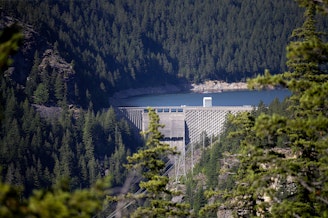New regulations to push WA homes away from fossil fuels in 2023

In an effort to meet the state’s climate goals, new regulations will push home construction in Washington toward all-electric heating and away from natural gas. Proponents of the change, which takes effect in July 2023, say it will also have public health benefits.
The regulations require new homes to have heat pumps, which are usually electric and more efficient than gas furnaces.
The requirements will apply to new single-family homes, duplexes, and townhouse clusters.
Cardiologist Mark Vossler, president of Washington Physicians for Social Responsibility, said it’s better for people’s health to not burn fossil fuels in the home.
“The pollutants released by burning gas increase the risk of asthma and other lung diseases, heart attack and other cardiovascular diseases, dementia and other neurological diseases,” he said.
Dr. Vossler said this change will especially benefit low-income families and communities of color, who are more likely to live in smaller homes — where pollution can't dissipate — and are more likely to be exposed to other forms of air pollution. The effects of air pollution are cumulative.
Sponsored
“This isn’t a de facto gas ban,” said Jonny Kocher, an advocate with the nonprofit clean energy group RMI, who helped draft the regulation. “It basically promotes electrification by requiring heat pumps.”
He said there are gas-powered heat pumps, or people could have gas backup for electric heat pumps, but “there’s a high incentive for folks to just go all-electric.”
A second building code change will increase the ventilation required in new homes that do have gas stoves installed.
These changes follow a related requirement in new apartment buildings, condos, and commercial buildings that passed in April. Those now have to heat both water and the building itself with electricity. In those buildings, gas stoves are also still allowed, but the electric heating requirement means it won’t usually be cost-effective to install them.
These changes aim to bring down Washington’s overall carbon emissions — about a quarter of which come from buildings.




